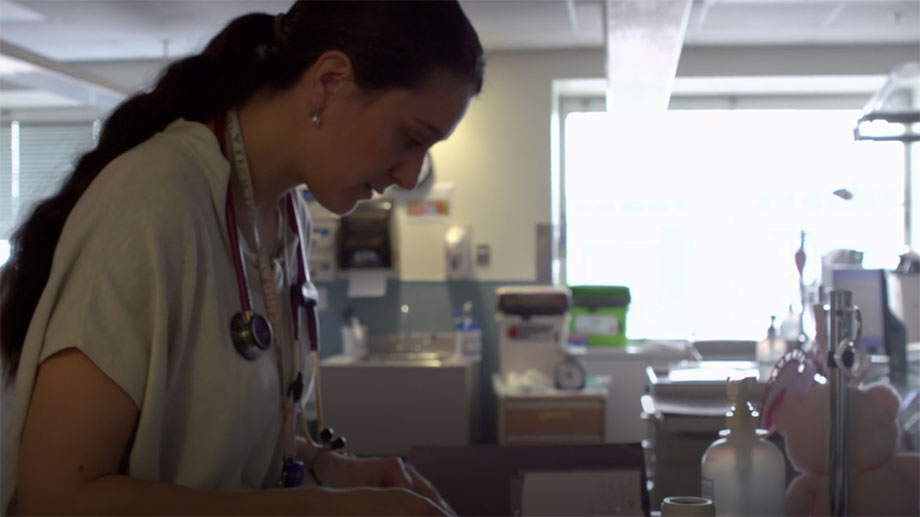A few highlights from around the web that made it into our feeds this week.
The Core Lesson of the COVID-19 Heart Debate
This article takes a look at the heart from the virus’s point of view, and not just Covid-19 but all viruses. It’s an important and useful perspective as viruses can affect the heart, a more common occurrence than many realize. There has been quite a bit of confusion on the link between Covid-19 and myocarditis, inflammation of the heart muscle. Here, the science is clear—what we know and don’t know. Researchers dispel some of the initial claims of coronavirus effects on the heart, discuss current data, and ongoing studies. A good one. (From theatlantic.com)
The Underused Weight Loss Option: Bariatric Surgery
Bariatric surgery is proven to be the most effective treatment for severe obesity in adults and adolescents but is still underused by most who would benefit. An important point to note—surgery itself is not a solution but a powerful tool with proven results and extensive long-term health benefits. It’s more than a matter of quality of life, studies show that the degree of weight loss directly correlates to mortality and an increase in life expectancy. Read this article to get a lay of the land, then follow up with a fantastic interview on the science of weight loss and latest in surgical treatments with Marc Bessler, MD, Chief of Minimal Access/Bariatric Surgery. (From nytimes.com)
Stigma is killing people with substance use disorders. Health care providers need to rid themselves of it
Ridding ourselves of stigma starts with the language we use. Data shows that opioid deaths continue to climb as the pandemic lingers on, and patients who face negative bias more often defer necessary care for other conditions or put off treatment until those conditions are severe or life-threatening. Contained in this article are some great resources to bring more thoughtful and unbiased language into practice and institutional framework.
“Every time a doctor talks to me in a way that allows them to look me in the eye and not be a paper on a clipboard, they’re reducing harm because all of a sudden I don’t feel shame,” says Slade Skaggs. “I feel like I’m being treated as a human being worth loving.” (From statnews.com)
This week, we’re closing out with a documentary short.
Dying in Your Mother's Arms
by John Beder
The film follows the quest of a palliative care physician to make death less medical and more human for families with terminally ill children. Beautiful, sad, necessary, and full of love. (From nytimes.com)
Also check out:
- What We’re Reading: 09/25/20
- What We’re Reading: 09/11/20
- What We’re Reading: 09/04/20
- What We’re Reading: 08/28/20
- What We’re Reading: 08/21/20
- What We’re Reading: 08/14/20
- What We’re Reading: 08/07/20
- What We’re Reading: 07/24/20
- What We’re Reading: 07/10/20
- What We’re Reading: 06/26/20
- What We’re Reading: 06/19/20
- What We’re Reading: 06/12/20
- What We’re Reading: 06/05/20
- What We’re Reading: 05/29/20
- What We’re Reading: 05/22/20
- What We’re Reading: 05/15/20
- What We’re Reading: 05/08/20
- What We’re Reading: 05/01/20
- What We’re Reading: 04/24/20
- What We’re Reading: 04/17/20
- What We’re Reading: 04/10/20
- What We’re Reading: 04/03/20
- What We’re Reading: 03/27/20
- What We’re Reading: 03/20/20
- What We’re Reading: 02/28/20
- What We’re Reading: 02/21/20
- What We’re Reading: 02/14/20
- What We’re Reading: 01/31/20
- What We’re Reading: 01/24/20
- What We’re Reading: 01/17/20
- What We’re Reading: 01/10/20
- What We’re Reading: 12/20/19
- What We’re Reading: 12/13/19
- What We’re Reading: 11/22/19
- What We’re Reading: 11/15/19
- What We’re Reading: 11/08/19
- What We’re Reading: 11/01/19
- What We’re Reading: 10/25/19
- What We’re Reading: 10/18/19
- What We’re Reading: 10/11/19
- What We’re Reading: 10/04/19
- What We’re Reading: 09/27/19
- What We’re Reading: 09/20/19
- What We’re Reading: 09/13/19
- What We’re Reading: 09/06/19
- What We’re Reading: 08/30/19
- What We’re Reading: 08/19/19

